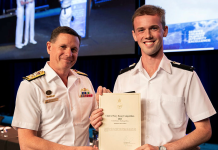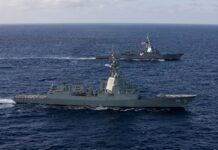By Shane McLeod and Jonathan Pryke*
Right when Australia finds itself with serious strategic interests in its neighbourhood, it has managed to turn its once influential international broadcasting voice into a whisper. One that’s difficult to hear outside a handful of major cities across the region.
Colleagues here at the Lowy Institute have written about international broadcasting before, highlighting its relationship to international diplomacy, lamenting government decisions about funding, and decisions by the national broadcast the ABC about services, and shutting down shortwave broadcasts to the Pacific islands region.
Both sides of politics can share in the blame for the poor state of Australia’s interational broadcasting.
Labor’s bitter internal wrangling over whether a contract for international television should be outsourced to Sky News over the ABC left the way clear for the incoming Abbott government to simply axe the contract entirely.
And let’s not let off the hook the decision makers at the ABC who took the opportunity of a funding “crisis” to seek elusive digital audiences in China – while junking decades of experience broadcasting to audiences in Southeast Asia and the Pacific.
We sound pessimistic. Thankfully, all is not lost.
The much reduced Radio Australia is still providing important news and current affairs coverage for the Pacific. Its last remaining foreign language broadcast service – in Tok Pisin – is still keeping audiences informed in remote Papua New Guinea and across Melanesia. The ABC’s website is still producing news in Mandarin and Indonesian. A bare-bones television service can be found – with some effort – across the region.
The elements are there to gently raise the volume of Australia’s voice in the region.
The UK government has realised the impact of its cuts to international broadcasting. A recent funding injection has allowed the BBC World Service to open up 11 new language services and expand its broadcast footprint, including (take note, ABC) using shortwave. It’s been described as its biggest expansion since the 1940s. Our analysis suggests that in dollars per person, the UK now spends around US$6.40 a year on international broadcasting. By comparison, the ABC spends a paltry 30 cents.
That is a tiny amount spent on broadcasting to a region where it is in Australia’s strategic interest to project its values and virtues; so called “soft power”. Australia’s most recent Foreign Policy White Paper argued that projecting those values was essential to the success of Australia’s international diplomacy.
It was a missed opportunity that the same paper makes no mention at all of international broadcasting. In fact, its mentions of media encourage diplomats in foreign embassies to make sure they know how to effectively use social media.
Our submission to the government’s inquiry into broadcasting services in the Asia-Pacific makes some recommendations on what can change.
First steps will be to recognise the value of maintaining an international broadcasting presence, and to fund it. Then, to recognise the value of having the national public broadcaster deliver it. The ABC will need to show it is serious about international broadcasting, and put in place the internal structures that will sustain it.
And when the ABC makes regrettable decisions – such as axing shortwave service to deal with domestic funding challenges – the government should be prepared to step in and make sure that important communication assets are maintained.
It’s not too late for Australia to turn around its serious underinvestment in this important tool of diplomacy.
* Shane McLeod is a Research Associate working with the Lowy Institute’s Australia-PNG Network. Before joining the Institute, he was a senior editor at ABC News in roles where he managed its Sydney newsroom and the flagship radio programs AM, The World Today, and PM. He is a former foreign correspondent with postings in Japan and Papua New Guinea.
Jonathan Pryke is Director of the Lowy Institute’s Pacific Islands Program. Prior to joining the Lowy Institute Jonathan was a Research Officer at the Development Policy Centre at the Australian National University where, on top of his research obligations, he was editor of the Development Policy Blog and a co-convener of the Australasian Aid Conference.
Republished with permission of the Lowy Institute


